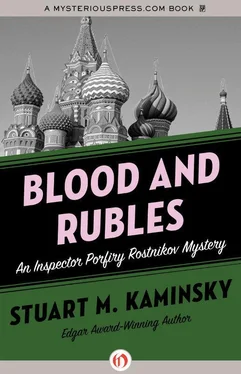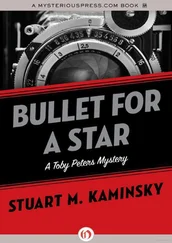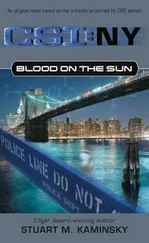Stuart Kaminsky - Blood and Rubles
Здесь есть возможность читать онлайн «Stuart Kaminsky - Blood and Rubles» весь текст электронной книги совершенно бесплатно (целиком полную версию без сокращений). В некоторых случаях можно слушать аудио, скачать через торрент в формате fb2 и присутствует краткое содержание. Год выпуска: 2012, Жанр: Полицейский детектив, на английском языке. Описание произведения, (предисловие) а так же отзывы посетителей доступны на портале библиотеки ЛибКат.
- Название:Blood and Rubles
- Автор:
- Жанр:
- Год:2012
- ISBN:нет данных
- Рейтинг книги:3 / 5. Голосов: 1
-
Избранное:Добавить в избранное
- Отзывы:
-
Ваша оценка:
- 60
- 1
- 2
- 3
- 4
- 5
Blood and Rubles: краткое содержание, описание и аннотация
Предлагаем к чтению аннотацию, описание, краткое содержание или предисловие (зависит от того, что написал сам автор книги «Blood and Rubles»). Если вы не нашли необходимую информацию о книге — напишите в комментариях, мы постараемся отыскать её.
Blood and Rubles — читать онлайн бесплатно полную книгу (весь текст) целиком
Ниже представлен текст книги, разбитый по страницам. Система сохранения места последней прочитанной страницы, позволяет с удобством читать онлайн бесплатно книгу «Blood and Rubles», без необходимости каждый раз заново искать на чём Вы остановились. Поставьте закладку, и сможете в любой момент перейти на страницу, на которой закончили чтение.
Интервал:
Закладка:
The two men continued to stand.
“Why do you do what you do?” Karpo asked, looking around at the furniture.
“Why do I …? To feed my family. Because I believe in preserving and protecting my government,” said Hamilton.
“Capitalism?” Karpo asked, examining a cushioned chair with delicately carved ebony legs.
“Capitalism,” Hamilton agreed. “Democracy.”
“Capitalism and democracy seem to be destroying my country,” said Karpo. “This chair is of museum quality.”
“Why do you do this?” Hamilton asked.
“Because I believed in Communism,” Karpo said. “I still believe in Communism. It was the weak, stupid, corrupt leaders who only gave lip service to our system who eventually destroyed the Soviet Union and betrayed Communism.”
Karpo kept examining the furniture, knowing that he was conversing with the FBI agent primarily to help contain the urge he had to begin destroying everything in the room.
“So you work in the hope that Communism will return,” said Hamilton, watching him.
“No,” said Karpo. “If it returns, it will be the same or worse. It is too late. I continue my work because I know nothing else to do and I do it well. The sense of satisfaction has diminished, whereas crime has increased. I’ve become a garbage man cleaning polluted litter that never stops falling and may destroy me.”
Since he did not know Karpo, Hamilton was not as amazed as his colleagues at the Department of Special Affairs would have been at Karpo’s openness. Karpo found it easier today to talk to a stranger who was very much like him in many ways.
“And the woman?” asked Hamilton. “Mathilde Verson?”
Karpo turned to look at the FBI agent and this time said nothing. The question was not a welcome one. The tension was broken by the return of Igor Kuzen with a cup of coffee on a saucer. Both cup and saucer were patterned with flowers and looked very delicate. Kuzen had also taken the time to brush his hair and put on a robe that exactly matched his pajamas. He sat in one of the more erect pieces of antique furniture and began to drink his coffee.
“You don’t want to sit?” he asked.
“No,” said Hamilton.
“As you wish,” said Kuzen.
“Aren’t you curious about why we have come?” asked Hamilton.
“Yes,” said Kuzen. “But I assume you will soon tell me. I saw you admiring the furniture.”
“And the view,” said Hamilton.
Kuzen smiled and took another sip of coffee.
“You are a scientist.”
“Correct,” said Kuzen.
“By appearances a wealthy scientist,” said Hamilton.
“I am comfortable,” admitted Kuzen, looking at Karpo, who definitely made him uneasy.
“You worked in a government office, at government wages,” Hamilton said. “Fifty dollars a month, maybe a bit more.”
“A bit more,” Kuzen said. “I’m a good physicist.”
“You worked in nuclear research,” said Hamilton.
“Dismantling nuclear arms and disposal of nuclear waste,” said Kuzen. “Beyond that, as your colleague will tell you, I am unable to comment.”
“You quit,” said Hamilton.
“To work in private industry,” said Kuzen, finishing his coffee and setting cup and saucer on an ornate metal trivet on the table in front of him.
“Private industry seems to have recognized your expertise,” Hamilton said, looking around the room.
“Capitalism has been good for me,” Kuzen said, folding his hands.
“What company do you work for?” Hamilton said. “We couldn’t find it in your files.”
“I am a consultant to many companies,” Kuzen said. “Both foreign and domestic.”
“Do you know a Mikhail Sivak?” asked Karpo.
“I’ve met him,” Kuzen said. “Hired him and some of his associates to transport goods for a company I do some work for.”
“Do you know that Sivak is dead?” asked Hamilton.
“I was informed,” said Kuzen, growing increasingly nervous at the hovering presence of the gaunt policeman in black.
“A shoot-out,” said Karpo. “Rival gangs. A woman died in the cross fire.”
“I’m sorry to hear that,” said Kuzen, adjusting his glasses.
“Sivak was a member of a mafia,” said Hamilton. “An organized gang composed mostly of former convicts, the Beasts, many of whom had served sentences at Correctional Labor Colony Nineteen.”
“And?” Kuzen asked, looking at Hamilton.
“And members of this mafia can be identified by a prison tattoo, an eagle clutching a nuclear warhead,” said Hamilton.
“I never noticed such a tattoo on Sivak or any of his friends,” said Kuzen.
The two men had slowly inched forward and were looking almost directly down at Kuzen.
“The tattoos are generally in places that are not visible if the man is clothed,” said Hamilton.
“Interesting,” said Kuzen.
“Several years ago an attempt was made to smuggle nuclear material into Germany,” said Hamilton. “Is that also interesting?”
“Yes,” said Kuzen.
“You had heard about this attempt?” asked Hamilton.
Kuzen was definitely sweating now and was unwilling to wipe his forehead for two reasons. First, the policemen would see. Second, he might stain his silk robe or pajamas.
“Something. Vaguely,” said Kuzen, “when I worked for the government.”
“How secure are nuclear weapons in Russia?” asked Hamilton. “Your best guess.”
“Not terribly secure,” said Kuzen.
“Weapons depositories are guarded by a few untrained soldiers and a barbed-wire fence,” said Hamilton.
“I know nothing about that,” said Kuzen, looking up from man to man, sitting back as far as he could.
“How much of a problem would it be to steal fissionable material, perhaps even short-range warheads?”
“I couldn’t begin to speculate,” said Kuzen.
“The mafia for which you are working,” said Karpo, “is already, with your help, in possession of nuclear material and planning the massive theft of nuclear weapons. These are to be shipped out of Russia with the help of Italian criminals and sold to North Korea, Iran, and China.”
“Me?” Kuzen said, pointing to himself.
“You,” said Hamilton. He wondered where Karpo had gotten his evidently accurate information.
“The woman who died in the cross fire between the two gangs was a particular friend of Inspector Karpo’s,” Hamilton said.
Kuzen looked up at the blank white face. The men standing before him looked like chess pieces-one black, one white, avenging knights who might strike at odd angles.
“Inspector Karpo has already visited with a member of the gang we are discussing with you,” said Hamilton. “He has visited a prisoner named Voshenko. Do you know Voshenko?”
“Voshenko? Voshenko,” Kuzen said, finding it impossible to control the trembling in his voice. “The name is-”
“Very big man,” said Hamilton. “Bigger than the man downstairs whose knee I accidentally dislocated.”
“Big man. Voshenko. Yes. Maybe,” said Kuzen.
“Inspector Karpo broke both of his thumbs,” said Hamilton. “It was an accident too. Accidents can happen to anyone. For example, I could walk in the other room, find myself a cup, and pour myself coffee. I might hear the crash of breaking glass, and when I returned to this room, I might find the window broken and you missing. Do you have a family, Igor Kuzen?” asked Hamilton.
“Wife, two daughters,” he said, his voice breaking. “They … we live in a dacha outside of town.”
“Business success forces you to live in this apartment most of the time?” said Hamilton.
“Yes,” said Kuzen. “Listen, please, I know nothing of this gang business, or killings, or any theft of nuclear materials. I’ve done a few things that may not be strictly legal. Who really knows what is legal and what is not anymore? But killings, nuclear weapons. Nyet.”
Читать дальшеИнтервал:
Закладка:
Похожие книги на «Blood and Rubles»
Представляем Вашему вниманию похожие книги на «Blood and Rubles» списком для выбора. Мы отобрали схожую по названию и смыслу литературу в надежде предоставить читателям больше вариантов отыскать новые, интересные, ещё непрочитанные произведения.
Обсуждение, отзывы о книге «Blood and Rubles» и просто собственные мнения читателей. Оставьте ваши комментарии, напишите, что Вы думаете о произведении, его смысле или главных героях. Укажите что конкретно понравилось, а что нет, и почему Вы так считаете.












